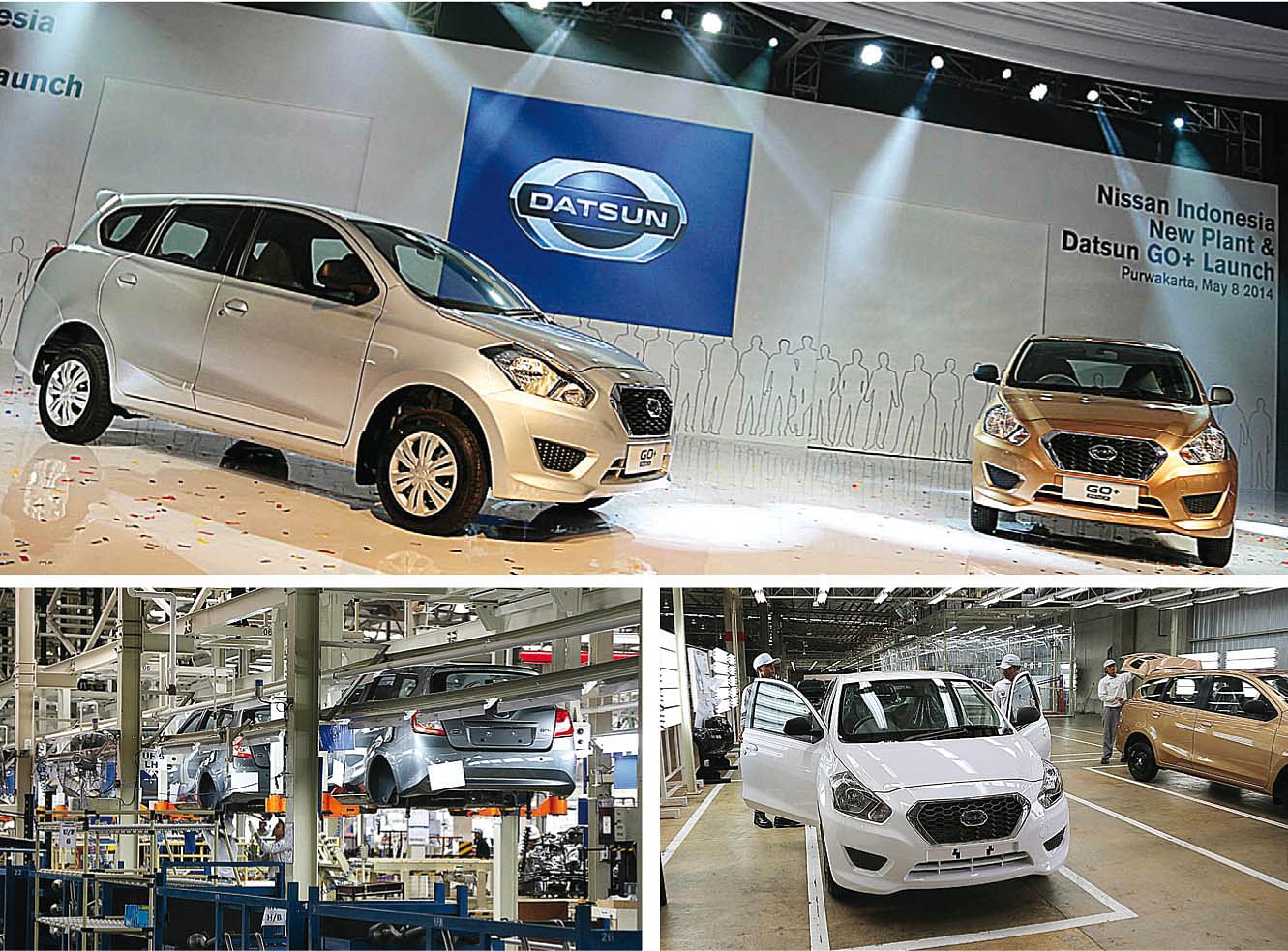Should Thailand be worried about a fast-rising Indonesia?
Since the second half of 2013, there has been an unchanged trend in monthly regional Light Vehicle sales in ASEAN: consistent strong growth in Indonesia in contrast to unceasingly weakening sales in Thailand.
Since the second half of 2013, there has been an unchanged trend in monthly regional Light Vehicle sales in ASEAN: consistent strong growth in Indonesia in contrast to unceasingly weakening sales in Thailand.
For some OEMs, Indonesia has already replaced Thailand as their biggest market in the ASEAN region. Some others have also increased production capacity in Indonesia. Toyota recently started production of the Vios and the Yaris there, and began exporting the models to other countries. Honda also added a production line for a variation of the Brio, and the new Brio-based MPV, the Mobilio. And on May 8, Nissan inaugurated its all-new second plant in Purwakarta, Indonesia and also launched the Go+ Panca MPV.
Since most of these models are key product outputs in Thailand, what do these changes imply for the future of the Thai automotive industry?
TRADING PLACES?
At first glace, it seems the more the Indonesian car market expands, the dimmer the outlook for the Thai auto industry becomes. It has certainly felt this way over the past 10 months. Political uncertainty and a worsening economy in Thailand have also added to the negative momentum. The president of Toyota, Thailand, did make a comment on the possibility that new investment could be transferred to Indonesia. A shortage of labour, rising wages, and other unsolved problems in Thailand have not improved the situation.
However, an investigation of the global situation may not necessarily back up these fears. In fact, automotive manufacturers globally, from small and medium suppliers to international assemblers, have been facing similar situations everywhere. Sales of most OEMs in their home and traditional markets, namely Japan, the EU and the US, have long been decreasing, whereas sales in emerging markets, such as China and ASEAN, have continually increased.
Besides, automotive firms encounter similar situations with imbalances between sales and production on a regular basis. Some OEMs are more active than others in rationalising their production: cutting and shifting production capacity towards locations with higher growth potential, and there is no doubt on the pressures for suppliers to follow their clients to a new location.

COMING ONTO A COMMON PLATFORM
On the other hand, there is an increasing trend of communisation of vehicle platforms and components. We have been hearing about OEMs’ efforts in introducing new 'global' or 'regional' models, and the gap between emerging markets and developed markets on environmental regulations, the main driver of powertrain strategies and product planning, has also become closer. Trade has also become more liberalised, enabling exports of automotive products from one location to another, anywhere in the world.
These are driving forces for consolidation of production at one location for exports. Major production hubs across the globe, such as Mexico, Brazil, South Africa and a few eastern European countries, have emerged and have been heavily exporting cars. Most importantly, Japan and Korea have continued to be the world’s major car exporting countries, despite significantly slow growth at home.
MITIGATING RISK
Other factors to be included in the equation are risk mitigation plans and social responsibility. Japanese automotive investment to Thailand has been partly a risk diversion strategy from China, and the fact that high production capacity has remained in Japan despite the long-running appreciation of the Yen and other negative factors on the country’s competitiveness, suggests there are other counter mechanisms working behind the scenes. Toyota, which promised to keep Japanese production at three million units a year, simply puts these factors as a contribution to the local community.
Automotive firms are now, in fact, confronting a challenge to redefine a more suitable meaning of localisation for their global business. “Produce where you sell” is no longer the absolute interpretation of the idea. This is especially true for much smaller suppliers whose investment capacity is far less limited. The recent loss announcement of Nissan, among high profits generated by rivals, also raised questions on the wisdom of several new production facilities around the world.
With these global frameworks, therefore, it would be too credulous to believe that the fast expanding car market in Indonesia would only result in the contraction of future Thai vehicle output. Positioning of the two countries in each firms’ strategy on ASEAN would definitely vary from one to another. For some, Thailand will continue to be the most important base in ASEAN, utilising regional trade agreements for exports to Indonesia, while for others, Indonesia could also function as a risk mitigation from Thailand.
In fact, Toyota has made it clear on the different roles between Thailand and Indonesia in ASEAN. A Toyota vice-president recently commented at a press conference in Tokyo that there would be no change in the Japanese carmaker’s plan for Thailand in its global strategy.
A similar strategy could also be implied for Honda. The two carmakers are among the 10 participants in the second phase of the Eco-Car program in Thailand. Clearly, both still believe in the long-term potential of the Thai market.
RELATED ARTICLES
The Dealers’ Dossier That Made It Into a Trade Deal
How FADA’s ground-truth playbook helped shape the India–EU FTA’s auto architecture—from a ministerial ask in mid-2025 to...
Telematics: The Route to India’s Next-Gen Logistics
As India's logistics sector races toward its 2030 efficiency targets, fleet managers are discovering that real-time tele...
Software Ages Faster Than the Car: The Bill Nobody Budgeted For
The Promise Was Longevity. The Invoice Is Just Arriving.






 17 Jun 2014
17 Jun 2014
 5964 Views
5964 Views





 Autocar Professional Bureau
Autocar Professional Bureau



 Arunima Pal
Arunima Pal

